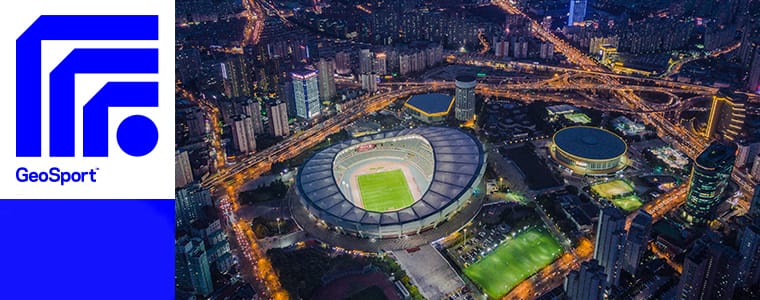22.12.2024
Globalised Sport: The Challenges of Governance
Tribune
2 avril 2021

In March 2021, the Institute of International ad Strategic Affairs (IRIS) published a report entitled “Sport mondialisé : les défis de la gouvernance”, co-authored with Carole Gomez and Pascal Boniface. The article below is an English translation of the paper’s executive summary.
Since the end of the 20th century, globalised sport has gained exponential significance in terms of politics, economics as well as popularity, as shown by the evolution of sport competitions’ television broadcasting rights. Indeed, whereas the Olympic Games in Rome (1960) were broadcasted in 18 countries, the London Games (2012) were watched in 220 countries and territories, with an increase of broadcasting rights by 21,398% between the two events.
The structure of sport governance, often perceived as outdated, has had to adapt to new economic, political and social challenges while addressing recurring threats to its integrity. The development of international sport has led to the formulation of criticisms against sport governing bodies, whose numerous polemics and accusations have negatively impacted the integrity of sport itself. The Fifagate or the 2002 Winter Olympic bid scandal figure among the controversies which have led various stakeholders to think about a new, or at least a better, type of governance. This recently published report presents a geopolitical and innovative approach to better comprehend and address the contemporary geopolitical stakes that have been impacting modern sport governance.
A wide variety of stakeholders has engaged with this issue: international sport governing bodies, supranational, national, as well as non-government organizations have formulated a number of approaches pushing for the implementation of a good sport governance. Academia has also published studies on the matter, such as the Swiss Graduate School of Public Administration and its “Principles for good governance in sport”, authored by Jean-Loup Chappelet and Michael Mrkonjic and published in 2013. Finally, and in addition to hybrid initiatives gathering civil society and sport organisations, athletes themselves – who have tended to be excluded from governance matters until recently – have been increasingly involved in governance reform in sport.
These initiatives serve as responses to recurrent criticisms faced by sport governance, whose shortcomings have been intensified by contemporary geopolitical challenges. For example, as early as 2001, the then IOC president Jacques Rogge identified match-fixing and doping as the two largest threats to sport. Also, organised crime has now made globalised sport a fertile ground on which it can launder dirty money by allying match-fixing with sport bets. The Russian doping scandal which debuted in 2014 figures among the many examples involving sport and doping in recent years. This particular episode placed the integrity of sport at the very centre of geopolitical confrontations between states which traditionally use sport as a soft power tool. Inscribed within this context, the adoption of the Rodchenkov Act by the US Senate in November 2020 signified two messages: one was directed against Moscow while the other confirmed Washington’s ambition to position itself as a sport integrity “policeman”. As a result, the efficiency of the Anti-doping World Agency, a multilateral organisation founded in 1999, was then largely questioned.
Additionally, international trends such as the fight against climate change have posed direct challenges to globalised sport governance. Indeed, global sport itself, which is directly threatened by climate emergency, is also being called out for its negative effects on the environment. Some sport governing bodies that are aware of this increasingly prominent challenge have added ‘sustainability’ to their governance pillars. Once again, there are exogenous actors to the sport movement involved in these reform policies, such as the United Nations and their Sport for Climate Change Action Framework.
The fight for gender equality has also played a significant role in global sport on two different levels, within the practice of sport itself and inside sport governing bodies. Although more women athletes have kept joining the sport movement since the 1990s, the IOC has recommended that such tendency should also be visible within sport governance itself during a 1996 global conference on “Women and sport”. However, as of today, women still have a limited role within sport governing bodies, particularly when compared to that of men. Within Olympic federations for example, only 8% of presidents and 11% of vice-presidents are women. Hence, despite substantial efforts spread over the past 15 years, a long way remains to be paved towards gender equality.
Finally, international movements in favour of human rights have also influenced an increasingly politicised globalised sport. Whereas apoliticism constitutes a fundamental pillar of sport’s organisation, athletes’ socio-political advocacy must now be considered. Indeed, through their engagement on and off the pitch, notably through social media, the principle of apoliticism itself has been called into question. Within the Olympic movement, the Rule 50, which has traditionally limited athletes’ freedom of speech, has for example been under scrutiny by the Athletes’ Commission, which will propose a set of policy recommendations in the Spring of 2021 to reform the rule, hence confirming how athletes are becoming game changers in sport governance reform.
It is therefore necessary that global sport considers contemporary geopolitical trends, by which it has been directly impacted, in the formulation of a new approach to governance. To read the full report (in French): Sport mondialisé : Les défis de la gouvernance
—————–
This article belongs to the GeoSport platform, developed by IRIS and EM Lyon.